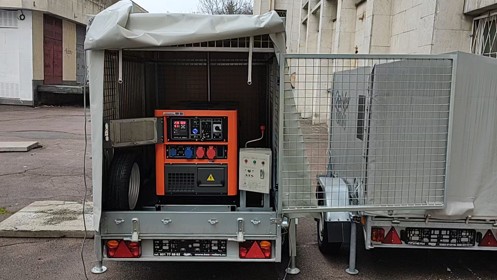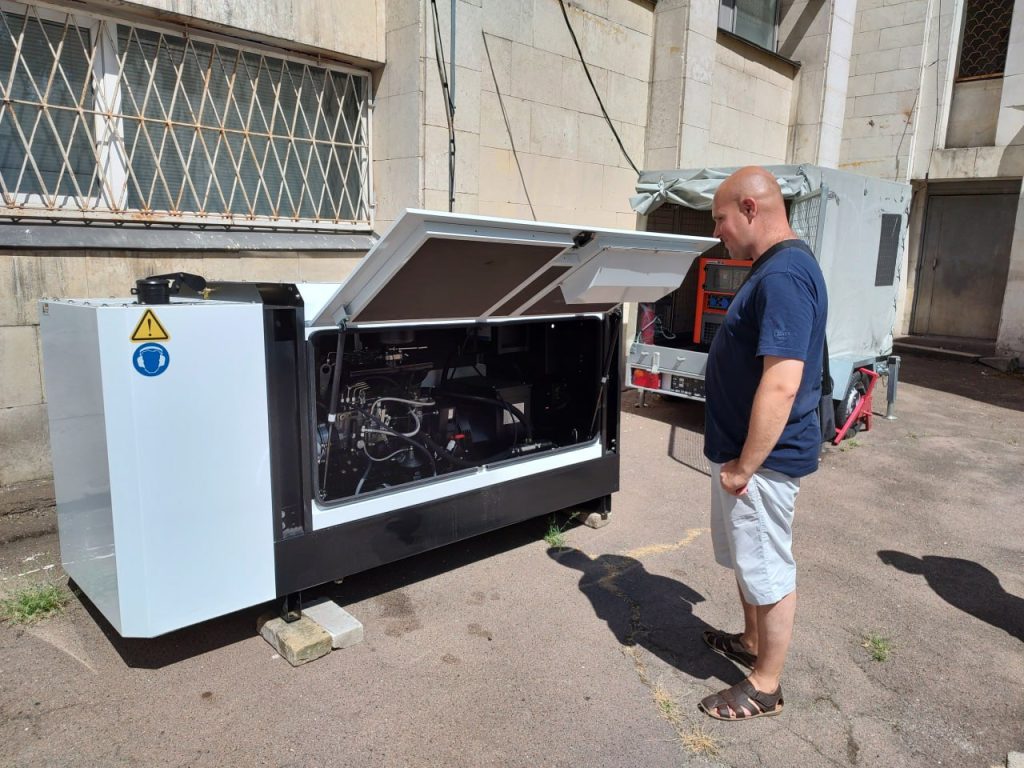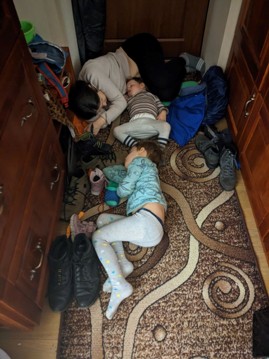EaPConnect regional network: Challenges in R&E support during the war
Published: 28 October 2024
Text – Tetiana Preobrazhenska, URAN

The ongoing war in Ukraine has posed severe challenges to the nation’s infrastructure, including its research and education networks. Despite these hardships, URAN, Ukraine’s National Research and Education Network (NREN), has managed to maintain essential services for universities and research institutions with the help of the EaPConnect project and European partners from GÉANT.
This article explores the key challenges URAN has faced during the war and how international cooperation helped URAN to continue its mission.
Enhancing Ukraine’s digital infrastructure
EaPConnect has played a vital role in enhancing Ukraine’s research and education infrastructure by supporting URAN in providing high-speed, secure connectivity. Through this project, Ukraine has access to a high-capacity spectrum link connecting Moldova and Ukraine to the GÉANT network, with a capacity of 100 Gbps, upgradable to 400 Gbps. In addition to connectivity, URAN also offers GÉANT digital services such as eduroam, eduMEET, eduGAIN, and eduVPN, fostering global integration for Ukrainian researchers, educators and students.
War's impact on network operations
The war has brought significant dangers to URAN’s operations. Missile strikes, drone attacks, and frequent blackouts caused by targeted attacks on Ukraine’s energy infrastructure have disrupted the network’s stability.
As of October 2024, all thermal power plants and most hydroelectric power plants in Ukraine have been destroyed, alongside many transmission facilities. This results in prolonged blackouts. Until the power engineers can restore the grid after each attack, there is electricity for only 4 hours a day, which can last for several days. Typically, Kyiv lives in cycles of 6-7 hours without electricity, followed by 2-3 hours with power, and the pattern repeats.
Additionally, institutions face increased cybersecurity threats, which have put digital systems at risk.
Responding to power outages
The destruction of Ukraine’s energy infrastructure has left the country facing prolonged blackouts. To overcome this, URAN has relied on diesel generators to maintain connectivity.
In the autumn and winter of 2022, an old generator proved unreliable, but by January 2023, a new generator, purchased with funds donated by GÉANT NRENs through the Vietsch Foundation, and delivered by EaPConnect partners at Polish NREN PSNC, became a lifeline.

However, with the energy crisis deepening, even this generator proved insufficient. A larger one was acquired, with the funds from the Vietsch Foundation, in mid-2024 to further strengthen the network’s resilience, ensuring URAN remains operational even during extended blackouts.

Evacuating universities and expanding eduroam
As some Ukrainian universities were forced to evacuate, URAN played an important role in ensuring their continuity. Kherson National Technical University, for example, relocated to Western Ukraine and got URAN’s assistance. In their new location, URAN quickly connected the university to its network and provided essential equipment.
Additionally, URAN expanded the eduroam service to support thousands of displaced students and staff, allowing them to access academic resources from different locations.
Cybersecurity challenges
As the war intensified, so did cyber-attacks on Ukraine’s digital infrastructure. URAN faced a massive number of DDoS attacks targeting vital websites. To protect its operations, the network implemented CloudFlare, UDP firewall rules, and BGP blackhole routes. Collaborating with Ukraine’s cyber police and military cyber units provided insights into the nature of the attacks, enhancing URAN’s ability to respond to evolving threats.
One of the challenges was unstable work of a network monitoring system. Frequent power outages disrupted internal links between network nodes, making it difficult to access remote nodes and diagnose problems. To address this, URAN adopted GÉANT’s Network Management as a Service (NMaaS), a cloud-based platform that allows for comprehensive network monitoring and management. This solution created an out-of-band environment, independent of URAN’s internal infrastructure, enabling remote access to monitor and maintain the network even under the most difficult circumstances.
Resource migration and international support
Frequent missile strikes and power outages placed Ukraine’s IT infrastructure at risk of destruction. With help from the GÉANT community, Ukrainian institutions were able to migrate resources and data to safer locations abroad. NORDUnet offered disk space for backups, while GÉANT and the OCRE project facilitated the deployment of virtual machines at AWS and Microsoft Azure data centers in Europe, safeguarding critical research and academic data.
Human and financial challenges
On a human level, the war has taken a severe toll on the URAN team. Operating under constant danger, including missile and drone attacks, has impacted both their mental and physical well-being. In Kyiv, where URAN’s headquarters are located, daily air raid warnings and night-time drone and missile attacks disrupt both work and rest, forcing the team to seek shelter in basements and corridors.

The stress of living in such conditions has led to exhaustion across the team, but they continue to push forward through mutual support, frequent communication, and finding solace in their personal lives, whether by spending time with family or pursuing hobbies.
Financially, the war has strained both URAN and its users. Budget cuts across universities and research institutions have forced many of URAN’s clients to limit their orders to only the most essential services, curtailing international cooperation and reducing extensive research activities. This, in turn, has directly impacted URAN’s financial stability, as it is not a government-funded organization and relies on service requests to sustain operations. To mitigate these difficulties, URAN has introduced flexible cooperation options, offering access for free for basic services, such as eduroam, eduGAIN in addition to the annual subscription to the URAN network. The financial support provided by GÉANT NRENs, through donations to the Vietsch Foundation, has been crucial in helping URAN address these challenges and maintain its operations during these turbulent times.
International cooperation: a lifeline for URAN
Support from the EaPConnect project and European partners has been crucial in keeping URAN operational. Donations from NRENs to the Vietsch Foundation enabled the purchase of generators that have sustained the network through blackouts.
An additional lifeline has come from the Computer Aid initiative, which provided refurbished laptops to URAN users who were most affected by the war. URAN received 170 laptops from two shipments sent from the UK, which were distributed to universities and research institutions in cities heavily shelled by Russian forces, as well as to institutions that had been evacuated from occupied territories. This support has been essential for ensuring they had the technology needed to continue their work despite the immense challenges they face.
Conclusion
The war has posed severe challenges to URAN, from ensuring network stability during power outages to supporting evacuated universities and navigating financial hardships. Yet, through resilience and international cooperation, URAN has managed to maintain its essential services, ensuring Ukraine’s research and education community remains connected to the global academic network. The ongoing support from EaPConnect and GÉANT community will be crucial in overcoming future challenges and sustaining Ukraine’s research and education infrastructure. Together, through unity and determination, Ukraine’s academic sector will continue to thrive, even in the face of adversity.